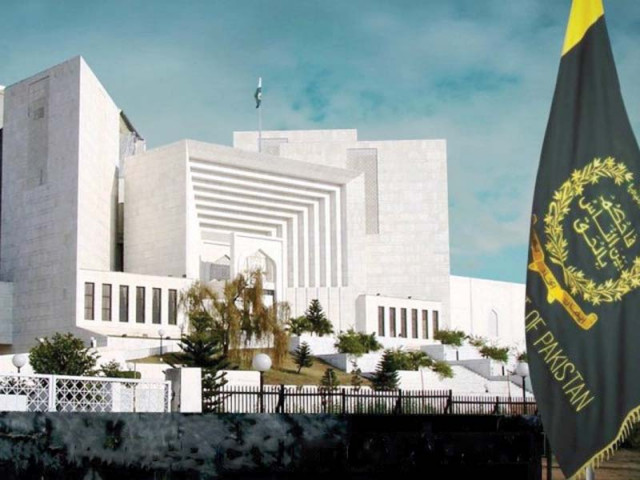Higher education: SC issues notice to AGP in HEC petition
Commission has moved top court against LHC ruling on education standards

The Supreme Court of Pakistan. PHOTO: EXPRESS
A three-judge bench, headed by Chief Justice of Pakistan Mian Saqib Nisar, granted the civil petition for leave to appeal (CPLA) filed by the HEC and issued the notice to the AGP for legal assistance.
The bench after granting the leave on four grounds adjourned the hearing for an indefinite period.
The HEC had moved a petition under Article 185 of the Constitution against the LHC division bench’s judgment dated April 27 judgment, allowing the provinces to develop standards as well as appointments in higher education departments, which are situated in their respective locations. During the hearing, Raheel Kamran Sheikh argued on behalf of the HEC.
HEC deadline to meet criteria ends on 30th
The petition contends that the legislative subject of ‘education’ falling in the unwritten Residuary List cannot be construed to extend in its meaning, scope and application to encroach upon the subjects enumerated in entries 3, 16, 17 & 59 in Part I and entries 12 & 18 in Part II of the Federal Legislative List in the Constitution.
It is also stated that in terms of Article 142(a) of the Constitution, the legislative authority of the federation on everything in pith and substance covered by the entries in the Federal Legislative List falls within the exclusive jurisdiction of the federation and the provinces are barred to legislate on those subjects.
“The learned division bench of the high court has, therefore, manifestly erred while extending the scope of [the] legislative subject of ‘education’ falling in the unwritten Residuary List to encroach upon the subject of standards in institutions of higher education specified in Entry 12.”
The petition states that the approval of the Council of Common Interests is not mandatory for the standards or guidelines prescribed or recommendations made by the Higher Education Commission under Section 10 of the HEC Ordinance, 2002 to have a legal effect.
“The judgment of the high court is not in consonance with the law laid down by this august court vis-à-vis the role of the Council of Common Interests in regulating work of the institutions under its supervision and control.”
The HEC further states that another aspect that the LHC has failed to appreciate regarding the role of the Higher Education Commission of Pakistan, is that while prescribing standards in institutions for higher education and research, it is to implement educational pacts and agreements with other countries (as envisaged in Entry 3 of Part I in the Federal Legislative List) and prescribe such internationally acceptable standards as would promote recognition of Pakistani degrees in other countries, facilitate Pakistani students in foreign countries as well as promote Pakistani institutions for higher education and research of foreign students (as visualised in Entry 17 of Part I in the Federal Legislative List).
HEC bars four universities from enrolling students
It is contended that the HEC Ordinance-2002 was enacted under the powers conferred by Entry 38 in the erstwhile Concurrent Legislative List. After the 18th Amendment, Entry 38 was split, with the devolution of certain aspects covered by Entry 38 were handed over to the provinces.
“The purpose of inserting Entry 12 makes it abundantly clear that the Constitution intends that the standards in institutions for higher education and research should be legislated upon exclusively by parliament.
“While leeway has been given to the provincial assemblies on all aspects of education -- including curriculum, syllabus, planning with regard to the primary, secondary and intermediate education -- the matter relating to standards in institutions for the higher education, research, scientific and technical education has been left exclusively to parliament, and remains in line with the constitutional structure and federalism on which our Constitution is based.”
The HEC states that the Punjab Higher Education Commission Act-2014 is ultra vires of Article 142(a) read with entries 3, 17 & 59 in Part I and entries 12 & 18 in Part II of the Federal Legislative List.



















COMMENTS
Comments are moderated and generally will be posted if they are on-topic and not abusive.
For more information, please see our Comments FAQ